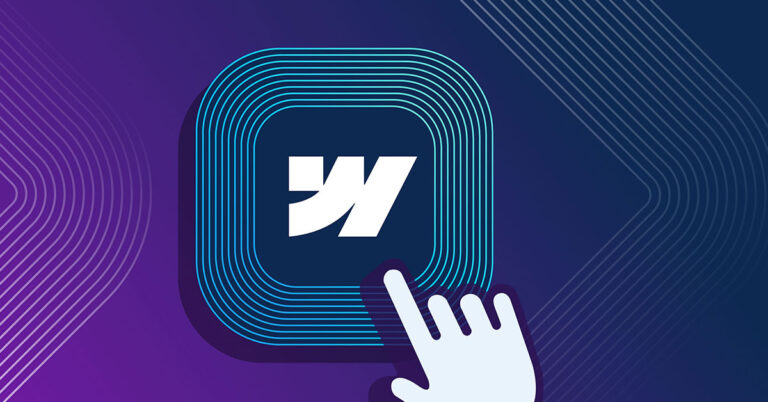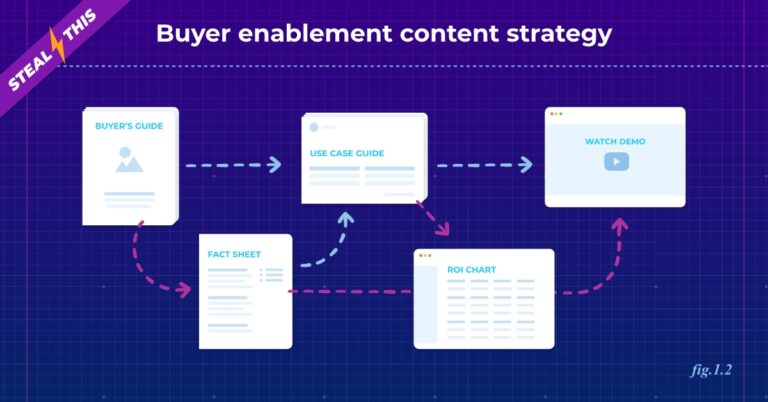2020 was a rough ride for marketers. As a growth marketing agency with almost two decades of experience in the ways that digital marketing reinvents itself, Iron Horse pivoted quickly into supporting our enterprise customers with virtual events. It was exhilarating to witness the experimentation happening in the industry and to be a driving force for creating impactful virtual events for our customers.
To help our clients exceed stakeholders’ expectations—and goals—the Iron Horse team attended events of all shapes and sizes, explored dozens of platforms and technologies, and met with CMOs at top organizations in a variety of industries. We’ve collected our thoughts here on the most important takeaways from 2020, and our predictions for 2021.
Uzair Dada, President & CEO.
2020 was the year for experimentation. 2021 will be the year of innovation and application.
One of the highlights for me in the first wave of virtual events and conferences was Adobe Summit. They focused on creating a customer-based virtual event experience. And they knocked it out of the park with on-demand sessions and simple navigation that ensured attendees weren’t frustrated and could enjoy the full experience of the event.
Successful virtual event planners take a digital-first approach, focus on the experience, and have a deep understanding of the technology. Many of phase 1’s big fails missed in one or more of these areas. Some tried to replicate the live event experience in a digital environment, rather than imagining digital-first methods of satisfying the same needs. Others were limited by premature platform selections or saw their events brought to a screeching halt mid-stream by unanticipated tech issues.
But, as platforms, strategies, and responsiveness improved, and the realization set in that 2020 was never going to be “normal,” organizers and attendees began to commit more fully to this new model. Attendance and engagement increased—and so did audience data. This all positions us extremely well for 2021.
Key takeaways from 2020.
True innovation and growth don’t happen without experimentation and failure. All of these experiences, positive and negative, drove platform maturity and the development of best practices forward at an incredible pace. Marketers everywhere—and future virtual event attendees—benefited greatly from the public experiment that was virtual events in 2020.
Top predictions for 2021.
We are not done growing or evolving. With the release of multiple COVID-19 vaccines, and many event planners already considering hybrid event models, 2021 will yet again define a new normal for events.
- Virtual events will evolve and incorporate more than user summits and trade shows.
- Organizations will travel a bumpy but strong path to instituting hybrid events once live events make a comeback.
- Key platforms will scale and take on the lion’s share of hosting virtual events across the industry by building something more holistic.
- Marketers will get savvier about how they incorporate virtual events as a core part of their integrated marketing strategy.
Samir Mehta, VP Product & Customer Success.
Virtual event platforms will innovate the networking experience in 2021.
2020 was a global situation with events being shut down across the world, and I can’t think of any recent global incident that required and then stirred a global response. Organizations everywhere had to make up for the loss of one of their most tried and true demand gen tactics, and dive into the digital environment to do it. The level of adaptability organizations everywhere showed during this year is something to marvel at, but also something to get excited about as we look forward.
Key takeaways from 2020.
One of the biggest obstacles this past year had to do with the available platforms for hosting a virtual event. Companies were stuck using webinar platforms which were adjusted and altered into some Frankenstein creation before quickly being proven ineffective for both the needs of virtual events and for the goals of the companies hosting them. While these companies worked to add capabilities, several new providers emerged to take on the challenge from the ground up, and those companies are now coming into their own. The virtual event platforms that have made it through 2020 have strong foundations and are ready for expansion. Expect to see some of these companies focusing on the next wave: how to support hybrid events.
Top prediction for 2021.
Hybrid events are top of mind for almost everyone, but the first big innovation in virtual events in 2021 will be improving the virtual networking experience. I can’t count how many times I’ve started a conversation with someone while waiting in line at a booth or sitting at a bar after the event, which then turned into an extremely valuable business contact. Those serendipitous networking opportunities are a huge missing piece in virtual events right now. Look for 2021 to find a few different creative solutions from both startups and existing platforms for filling that need.
Stephanie Siemens, Growth Marketing Associate.
Virtual events and their advantages are here to stay.
2020 has been a wild ride, to say the least. Amid all the awful things that happened, there were some good things that came out of it too. Events pivoted—and they pivoted hard. I am extremely proud of the marketing and events industry as a whole for weathering this storm and coming together to create truly inspired virtual event experiences in 2020—something completely unforeseen when organizations were planning and budgeting for the year. If this was the industry with its back against the wall figuring it all out as the year went on, then 2021 should be all the more innovative and exciting.
Key takeaways from 2020.
Virtual events didn’t just succeed because we needed them to. There are some things that make them, if not a better tool than at least an essential tool in the event marketer’s arsenal:
- Enormous reach while eliminating factors such as travel time and cost.
- Deep data tracking on registrants before, during, and after an event.
- More attendees to consume brand content than at physical counterparts.
Top prediction for 2021.
We’ll continue to see virtual events reign for the foreseeable future, and companies will continue to optimize and expand their virtual offerings in this next year. We’ll never fully go back to an “in-person only model” because virtual has been too successful to ignore.
Ellen Smoley, Growth Marketing Manager.
2021 is the year that virtual events mature.
I love the quote from Mike Volpe: “Don’t be afraid to get creative and experiment with your marketing.” We as marketers are inherently creative, but 2020 was the year for extreme creativity and innovation. When the pressure is on, the best heads come together and great products and campaigns are born. Yes, 2020 was (and still is while I’m writing this) a very bad year, but now the stage is set and it’s time to plan for a slightly more predictable year ahead.
Key takeaways from 2020.
One of the most difficult parts about hosting virtual events this past year was trying to keep attendees engaged, informed, and entertained. Structurally, companies began creating experiential session tracks to make attendees feel connected, and make the virtual event feel more “Human.” But experiential sessions, such as live music or mixology courses were not enough to recapture what we had lost from live events. In 2020, companies struggled to ensure attendees explored all the great content, experiences, and sponsor booths because that’s a solution that requires thorough knowledge of the event and available resources—much like what the event staff does at a live event. Having a single moderator for an event, or even several just wasn’t cutting it for virtual events with thousands of attendees.
Top prediction for 2021.
I had the opportunity to execute multiple virtual events with clients, and there is one virtual event component that stands out as I look toward the maturation of virtual event technology; Chatbots! Chatbots have been a must-have for our virtual events because they can act as a navigator, help desk, assistant, and more. They depict the human aspect of an in-person event but are not completely tailored to a one or two day experience, after all, chatbots were made for websites that have interaction on a daily basis. Even with limitations, we were able to build chatbots to recommend sessions, help with registration, assist attendees with common questions, and help them connect to a human on the event staff. Chatbots proved powerful for our virtual events and I believe the innovation with virtual event chatbots is limitless. Perhaps in 2021, chatbots will help with networking, matchmaking, and have more of an AI engine to tailor the event to the individual attendee.
Jay Famico, Chief Research Officer.
Hybrid events will become the new normal.
COVID-19 froze physical events and meet-ups, leaving B2B marketing to make up the shortfall in lead generation goals and find alternative means for accelerating the sales pipeline. The answer? Pivoting to virtual events. The result? A new category of tools—virtual event platforms—previously not covered by any major analyst firm.
Key takeaways from 2020.
While virtual event platforms are not yet mature, their development advanced significantly in a short amount of time. Over the course of the year, they went from being unknown to being discussed at the executive level. Perspective on virtual events has shifted, and it’s finally understood by most that virtual events are more than just a highly produced webcast.
Top prediction for 2021.
As physical events reboot in mid-2021, I’m predicting that events (especially larger events) will take a hybrid approach, allowing attendees to join in person, virtually, or a mixture of the two. This will be a major change because historically, events are only delivered through one medium. Sure, some events allowed people to attend a simulcast of a keynote, but one could not attend multiple online sessions, engage in community networking, or interact with sponsors digitally.
There are four drivers of this change:
- Increased platform maturity. There are more robust and fault-tolerant virtual event platforms.
- Familiarity. Change is far more likely thanks to increased familiarity with virtual events as a demand generation and sales enablement tool.
- Value maximization. As compared to a physical-only event, hybrid events significantly broaden an event’s audience and increase its market exposure for a relatively minimal budget increase.
- Changed delegate profiles. Though physical events afford a greater means of engagement, they also require travel. With greater health concerns and a renewed focus on budget efficiency, many potential delegates are unable or unwilling to join events in person.
The shift to hybrid events won’t happen all at once, and it certainly won’t be fluid. There will be missteps as best practices are still unknown. Organizations will need to figure out logistics, presentation style, pricing, and packaging, along with how to artfully integrate virtual and physical components together.
The Iron Horse insight.
In 2020 we learned that virtual works, with a few drawbacks. 2021 will be a year of reimagining events as a whole (both in-person and virtual, and the interplay between the two). As companies start thinking about what a hybrid event means for their organization and audience, what we’ve learned this year will help. But as event experience needs evolve and virtual event platforms innovate along with them, companies will likely need to reconsider their tech stack to deliver the best experiences. By 2022 we’ll be looking, yet again, at a completely new normal for events.



